
HARRY POTTER AND THE DEATHLY HALLOWS: PART 2 (CD)
Sony Music
Release date: 11th July 211
Running time: 68: 22 minutes
Composer: Alexandre Desplat
Harry Potter And The Deathly Hallows: Part 1 Film Review
Harry Potter And The Deathly Hallows: Part 2 Film Review
Harry Potter And The Deathly Hallows: Part 2 Soundtrack Review
Alexandre Desplat Official Site
Golden Globe and BAFTA winning composer Alexandre Desplat has written some of the most beautiful and evocative scores for films in recent years including The Curious Case of Benjamin Button (2008), The Ghost Writer (2010) and Harry Potter and the Deathly Hallows:Part 1 (2010).
He joins us now for an exlcusive and in-depth chat about his most recent work, Deathly Hallows: Part 2 (2011) and The Tree of Life (2011), as well as his hero John Williams, his jazz influences, the magic of Harry Potter and the wonder of Terrence Malick.
What first drew you to music? Do you remember if it was merely the sound or also the idea that it could be used as a form of expression for your feelings and imagination?
You were also exposed to a lot of American Jazz during this time too, were there any particular jazz musicians that had a strong impact on you during that time?
I studied the cornet when I was between 7 and 9 because of the jazz music I was hearing at home. Late I learned jazz chronologically to understand the music. I was going from Armstrong to Stan Getz, for example, it seem very weird to me and I couldn’t understand the link. So it took me a few years to connect all these different eras; swing, the bop, the hard bop, bossa nova influence, the free jazz. Of course now there’s a few that remain very, very strong in my influence and that’s Bill Evans, Miles Davis and maybe Duke Ellington.”
Was John Williams a big influence or hero for you as well?
I was always surprised when I was with friends, while I was studying music, and they would not be able to listen to Stravinsky, they couldn’t get it. At the same time they would go to cinema and listen to the music of Star Wars or Close Encounters of the Third Kind. They would hear music that was very contemporary, very modern and very challenging. I loved the idea that we could elevate the spirit of people through music and their sense of music through cinema. I must say that was also an important part of my decision to write music for films.”
The films you’ve been involved with over the years, do they also reflect what you like to see and the kind of stories that move you?
There are some directors you dream of working with when you’re a moviemaker like I am – I consider myself a moviemaker because I am part of this collective artwork – you dream one day that they will call you! Stephen Frears, Roman Polanski, Terrence Malick…I’ve been really, really lucky to have been approached by these really great directors who know how to tell a story with a camera.
Sometimes it’s not only the project; it’s also the connection with the director which makes it exciting and sometimes very easy. Some directors I know immediately where I’m going or where I should go. I find very easily the tone because I connect with them and the sensitivity. I’m talking specifically of Stephen Frears and Roman Polanski, that’s true of them. With others it’s more difficult, you need to search a bit a more, which is good too. There’s a great treasure in feeling this intimate connection with some directors who have the same sense of restrained emotion and sense of dark humour which I enjoy and share.”
Were you familiar with the Harry Potter universe before composing for the films?
For Part 1 you brought back John Williams’ Hedwig’s Theme, are there some familiar elements in Part 2’s score as well?
What can fans expect from both the movie and the score for Part 2?
This is also my favourite piece from the score. There’s something in it I haven’t heard in the series before.
Many, many cues I’ve multiplied the string orchestra by four. I love using the strings in a different way, it’s just my way and I love the way they play with very little vibrato. For example the opening of the film, if you add all the strings playing there are 240 strings playing. It creates a strange, wide and deep sound. It’s still gentle, it’s never loud but it’s still thick, very big, very strong and powerful.”
You recorded again with Conrad Pope and the London Symphony Orchestra at Abbey Road Studios, what was it like working with them again?
As for Conrad, I first worked with him in 2005 on Syriana, so every once in a while I call him to work with me and on these last two episodes he seemed the right person to have with me. He’s just got such an incredible technique and experience from working with John Williams that it made sense. He’s the best actually, the best orchestrator in Hollywood. I was with the best sound engineer, in the best studio, with the best orchestra – what else did I need? It was pure joy and a lot of work.”
Now that it’s all done, how do you feel about being part of Harry Potter history?
Usually, you work from seeing an edit of the film you’re composing for, but this wasn’t the case with The Tree of Life, how did you approach it then?
I would send him demos and he would say “Oh yes I like this” so I would record it with the LSO or an orchestra here and there. He would pick from these recordings a sound, a chord, a section, a sequence or pattern and use it – or not – in the film. It was always the deal we had up front. We knew from the beginning that there would be a lot of existing music and many vocal pieces that he wanted to use for many years. I was feeding him with music and I had no idea if it would remain. I must say that was a very different experience – to give the music before the movie had been edited.”
Now that you’ve had a chance to see it and hear it together, what was the experience like for you?
Has this experience changed your own approach to how you think about and work with music?
About Patrick Samuel

The founder of Static Mass Emporium and one of its Editors in Chief is a composer and music producer with a philosophy degree. Static Mass is where he lives his passion for film and writing about it. A fan of film classics, documentaries and World Cinema, Patrick prefers films with an impeccable way of storytelling that reflect on the human condition.











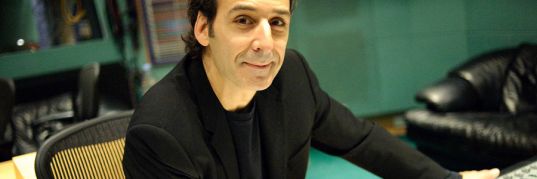
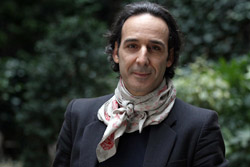
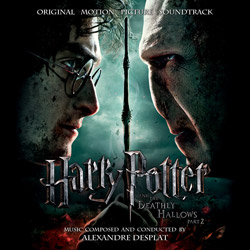
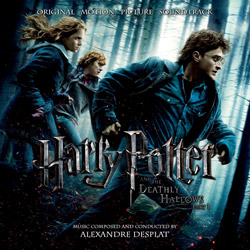
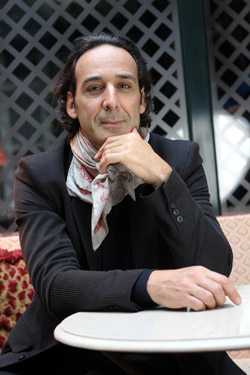
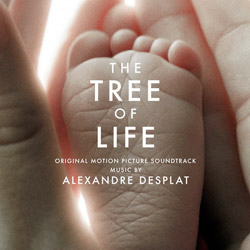
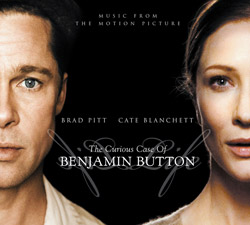
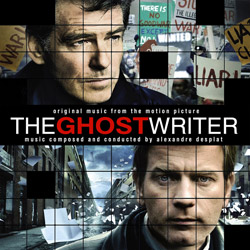


























































 sending...
sending...